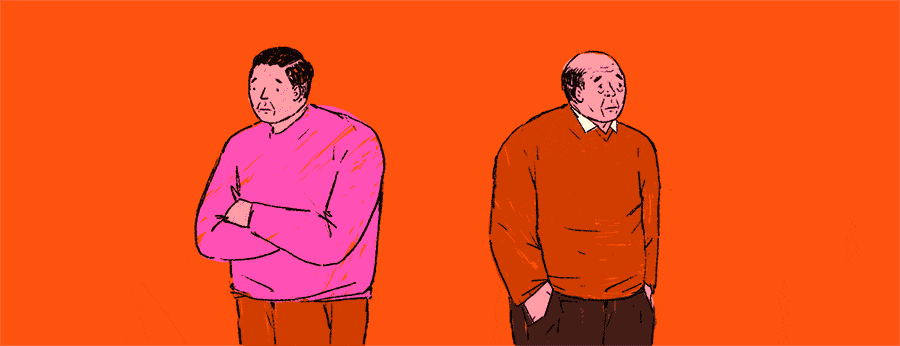Break the Culture of Silence: Family History of Alzheimer's
I don’t know about you, but I had no idea my family had a history of Alzheimer’s disease before it came knocking on our door for my grandfather. My mother spoke of her mom’s mom having dementia as though this news was some kind of common knowledge that was never told to me.
I’ve watched over the years as my grandfather’s siblings have shown the telltale signs of the disease. Still, there is very little conversation about such things. It may slip in here or there, my great aunt attended a Walk to End Alzheimer’s one year, and as we were rounding a bend in the Citizen’s Bank parking lot she said to me, “I have that,” but it’s not a topic of discussion, which, I believe, it should be.
Before we see the signs of Alzheimer's
I recently read an article in Forbes magazine. It discusses some new research, documented in Plos One, of two scientists who have studied umbilical cord blood from children and mothers who have a genetic predisposition to Alzheimer’s disease. In so doing, they have found active beta-amyloid protein within the cord blood of those who have a genetic mutation that makes them likely to develop early-onset Alzheimer’s.1 All that is to say that this disease begins taking from us long before we see the evidence of it.
When we see it the signs of Alzheimer's
The silence continues, in my opinion, once Alzheimer's has arrived. Family members may feel awkward around their loved ones and not know how to act or what to say. A loved one may decide not to invite their family member to a specific occasion, such as a wedding or christening, because she isn't sure "how that would work." A caregiver may be dismissive, saying "he can't do that" instead of problem-solving.
It's hard to find a new way to operate amid Alzheimer's disease. You have to change up the way you do things. For example, you may have to ask a boy cousin to accompany you to a public event that you want to bring your grandfather to, in order to avoid a public restroom situation. You may have to time your visits so that you're stopping by at a time that's conducive to his schedule, as opposed to yours. You may have to bring ice cream as a bribe for happiness. You may have to bring music that he loved to the nursing home to make your visit with your loved one more accessible. All of these are things I've done to accommodate for Alzheimer's with my Poppop. It's not easy; but it's do-able.
Be brave: Having the honest conversations about Alzheimer's
Now, I know not all families are the same. Perhaps having frank discussions about Alzheimer’s disease within one's family is something others talk about? Perhaps making accommodations for your loved one comes naturally.
All I know is that it’s a heartbreaking topic that one would ideally like to avoid, but it is a topic that, nonetheless, should be had and discussed among the members of a family, and not hidden away like a secret or avoided like a giant elephant in the room.
I’m not sure when we will find a cure for Alzheimer’s, but I believe that it will be soon, that the first survivor is alive today. But in order for that to happen it takes courage, it takes information and it takes discussion. Be brave and have those discussions.

Join the conversation